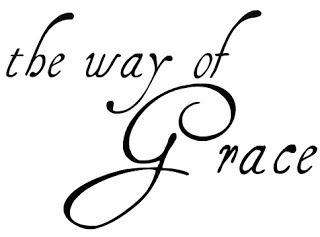
Believe it or not, in the madness of trying to launch Book 2 in the Miller's Creek novels,
A Path Less Traveled
, I'm already beginning the process of plotting Book 3,
The Way of Grace
. (I'm telling you, this writing business is addicting!) =)
Anyway, the villain in the story is a pathological character, so I've spent some time researching these kinds of people. Fascinating and scary at the same time!
Thought some of you other writers out there might be able to also use my research, so I'm including it in this post.
TYPES OF PATHOLOGICAL CHARACTERS
The first thing I learned that there are three versions of pathological characters: the narcissist, the sociopath, and the psychopath. They all have similarities, but here are the clinical descriptions in a nutshell.
Narcissism
is classified as a personality disorder in which self becomes the center of their world. (I used to think that narcissists were just people in love with themselves. It actually goes much deeper than self-love, though that is part of the disorder.)
Sociopaths
tend to fly under the radar and usually haven't become criminal. There are psychologists that believe that sociopathy is created from social environment, but there are also those who believe that sociopaths and psychopaths are virtually the same thing.
Psychopaths
have taken their mental problems into the world of criminal activity. Some believe that this psychological problem is genetic. These people "railroad" everyone who gets in their way.
PATHOLOGICAL CHARACTERISTICS
Rules don't apply to them, nor do they take responsibility for their behavior. They're masters of passing the blame. They will also deny wrongdoing, even if it means lying or telling partial truths.
Jekyll-and-Hyde-type behavior; unpredictable. This ping-pong behavior throws others off, making it impossible to figure them out. When recruiting, they can be the nicest people, but once they have you in their web, they flip and become dictatorial and tyrannical.
External appearances are often pulled-together and charming. They can be very persuasive. Often they are in positions of influence, which makes them difficult to remove from power or to place blame on them. Because they are often upstanding citizens, others tend to disbelieve any reports of abusive behavior. They are great actors.
Their whole agenda is based on compulsive power and control over others. All exhibit violence of some sort, though it's not always physical; most often the violence/abuse is psychological and emotional. Because of this, they are often referred to as "emotional vampires." Though not all pathological characters are murderers, they can all turn violent in one form or another.
Condescending, proud, haughty, arrogant, smug, patronizing, critical. (This characteristic is often the pathological's greatest weakness. Because they believe they're invincible and more intelligent than others, they can make mistakes that lead to their exposure.)
Demanding, dogmatic, rigid, and aggressive.
Cruel, punishing, and heartless. In order to exert power/control over their victims/enemies they can resort to public humiliation, ignoring and devaluing other people, berating others, and other such tactics to "put them in their place."
They have no conscience, nor do they have the ability to feel guilt or remorse.
Exploitive. They look for people's weaknesses, and use those weaknesses as a means of power/control.
Sense of entitlement, especially as it deals with adulation and special treatment from followers. They feed off the constant attention and admiration, and go ballistic without it.
Highly emotional, with lots of intensity. They can go from 0 to Rage very quickly.
Dismissive to those they perceive to be a threat, and/or those that aren't necessary for their personal agenda.
Because of their need for power/control, these people are often leaders in their mini-cults that they create around them. They demand complete obedience from their flock, their spouses, their children, and even friends. Everyone is expected to be subservient to their needs and cater to their wishes. They enforce their own rules, teachings, goals, etc., though they seldom practice what they preach.
Brain-washers and indoctrinators. In fact, the less accomplished they are in reality, the more stringent they are and the more pervasive the brain-washing.
Micro-managers. They have to make the decisions, because they believe they're the only ones capable of doing so. Those who fail to obey are punished and become instant enemies.
They don't respect the boundaries of privacy. They treat others as objects, rather than people.
They disapprove of independence of any kind. Isolation is the way they promote dependence among their mini-cult. That is why their spouses are often cut off from family and friends. Everything, including relationships, career choice, hobbies, etc., requires their permission and approval.
Widely unrealistic in expectations. In this way, if their rules aren't followed, they can justify their caustic conduct.
They reinterpret reality to fit their fantasy.
Their motto is "comply, agree, accept," and they actually seek out "victims" who fit this MO.
They force those in their power to be hostile to those who don't comply.
They're always on the lookout for people to add to their mini-cult. They are very intuitive, and almost have sixth sense when it comes to finding those who will submit to them.
They view relationships as a competition to be won. They don't see their significant other as a partner, but as an adversary.
CHARACTERISTICS OF THOSE TAKEN IN BY PATHOLOGICALS
Empathy
Compassion
Concern
Tolerant
Low self-esteem; feel unworthy and unloved
Selfless/sacrificial
Tuned in to the needs of others
Shyness
Perfectionists
Trusting of those in power
Fearful
(Pretty disgusting that pathologicals feed on these kinds of people, huh?)
RESULTS FOR THOSE CAUGHT IN A PATHOLOGICAL POWER STRUGGLE
Devastation (financial, emotional, mental, physical)
Trauma (some even suffer from PTSD)
Obsessive and intrusive thinking
Stressed to the point that they can't function
Hopelessness
Depression
Unable to feel (numb)
Fearful
Often others can't or don't understand the severity of what they've been through
EXTREME aftermath
HELP AND HOPE FOR HEALING
Pathology education (especially learning that "you didn't break them--you can't fix them").
Medical/Psychological help in dealing with PTSD and obsessive/intrusive thoughts
Learning not to "mirror" back to the pathological the behavior sought; learning not to capitulate to their wishes
No contact when possible.
Hope you find the post helpful. I know some of you may be able to share insights that I wasn't able to glean from my research. Feel free to post a comment!










 newest »
newest »
 newest »
newest »
 Scary that there are people like that.
Scary that there are people like that.














